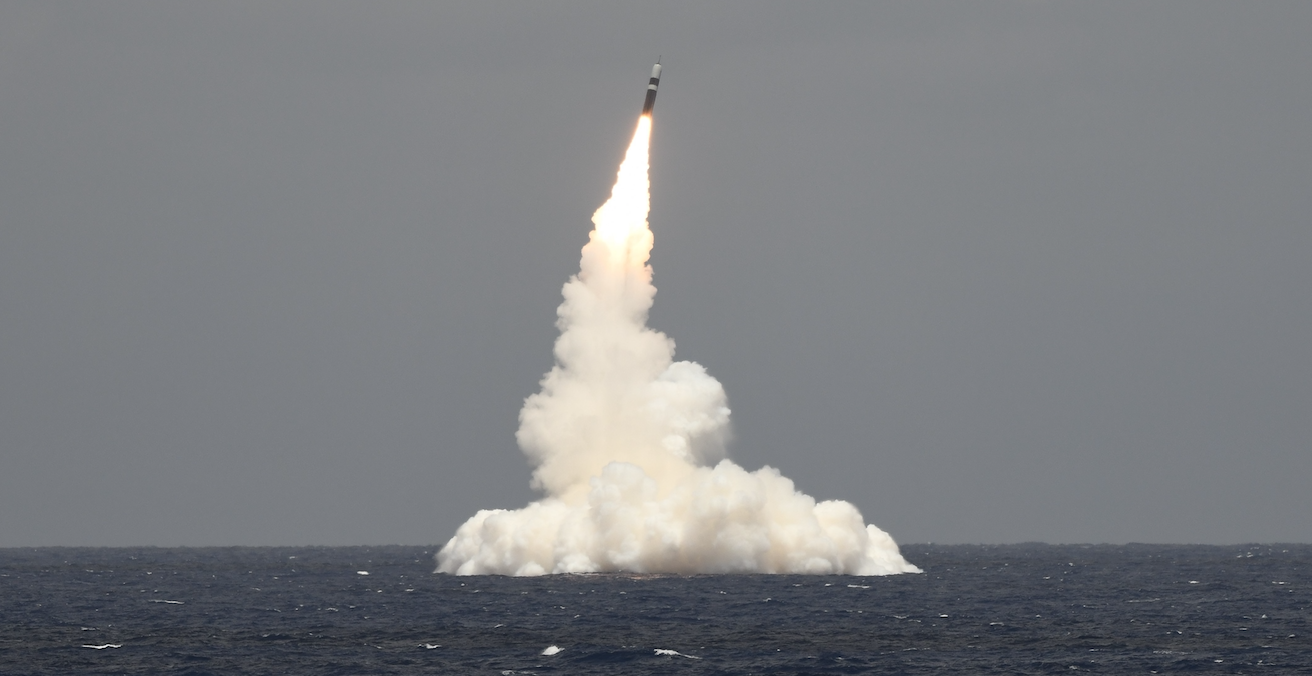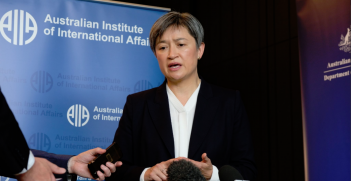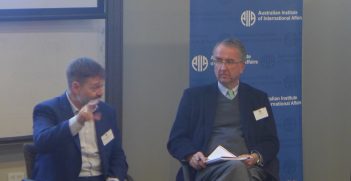How to Really Talk About Defending Australia

Hugh White’s new book, How to Defend Australia, recommends Australia double defence spending and consider nuclear weapons. Both are highly problematic, as is Australia’s insular and opaque military and security decision-making.
This article was originally published on Australian Outlook on 10 July 2019.
Hugh White’s How to Defend Australia made a big media splash last week, largely because it contains some controversial suggestions. Perhaps the most notable of these is that Australians should consider the option of developing our own nuclear weapons arsenal in preparation for what the author sees as a Chinese military threat to Australia.
White makes several other points: that defence spending should increase; that we should acquire many more submarines and fighter aircraft and reduce the number of surface ships Australia possesses; that US dominance is sharply dwindling in the Asia-Pacific such that Australia cannot depend on the protection of an American nuclear umbrella.
To be fair, White does not openly advocate that we must acquire nuclear weapons.
But he makes the point that Australians need to have a long-overdue conversation about what we want in terms of defence and national security.
So far, so good.
But I would go further and say that what we need is a complete overhaul of the way that national security policies and defence decisions have been conceived and framed in the first place. There has not been in this country a broad-ranging input from those outside the usual corridors of power about “first-order” questions: about what threats really exist “out there,” about what Australia’s national security interests and values should be or how we deliver security while still protecting individual freedoms and avoiding undue government secrecy.
Governments probably do need to retain some level of discretion when it comes to providing national security. But over the past two decades, the formulation of defence and security policies has become increasingly secretive, elite-driven and dissonant with what many Australians want.
I suspect that even if our government was to commit to broader public engagement on these issues, any proposal which differs radically from the given orthodoxy would not be taken seriously.
A quick examination of the recent defence expert panels suggests to me that nothing other than a — somewhat privileged, invariably white and predominantly male — “groupthink” prevails. Marigold Black’s exploration of the army as “an institution inclined to living in its own myth” can, I suggest, be extended to the broader national security and defence establishment.
Apart from the obvious point that politicians, public servants and national security elites are here to serve the electorate, too much has already been decided behind closed doors in Australia and without sufficiently broad public scrutiny.
One example of this problem is who gets to decide whether Australians should go to war. This is a grave matter and in any democracy worth the name, public opinion should be heeded, the options available should be discussed in Cabinet and an informed vote taken by Parliament. Yet our Prime Minister in 2003 made a unilateral decision to join the United States in the disastrous invasion of Iraq.
Since then, the processes of making our military and security policies seem to have become increasingly opaque and insular. Many policies, such as on migration and refugees, home affairs and surveillance, are subsumed by the dictate that “national security” trumps everything else. As someone who lived in this country from the 1960s onwards, I cannot help but notice how much more militarised and “securitised” our governments and policies have become in recent decades.
A fresh debate on security and on what we as a nation see as important is certainly needed.
Having called for a conversation about security and national defence — but not necessarily on the terms that I would envisage — Hugh White goes on to suggest some of the options as he sees them. What has received the most media interest is his raising of the nuclear weapons question.
Yet the idea of Australia developing nuclear weapons is highly problematic, not just because these weapons violate international humanitarian law but because their utility as a weapon is in doubt and because there is no guarantee that nuclear deterrence will actually “work.” Moreover, if we go down this path, will we be happy that some of our Asian neighbours might want to do the same? And how do we tell Iran to stop its nuclear ambitions if we ourselves reject the strong consensus against nuclear proliferation?
Nuclear issues aside, what for me was the most troubling element of White’s analysis was his call for Australia to hugely increase its defence spending. We currently spend just under two percent of our GDP on defence, or roughly $40 billion a year. White wants us to almost double this and spend 3.5 percent, or even 4 percent, on defence, totalling $70 to $80 billion dollars every year.
By way of comparison, not even the United States spends quite as much a percentage of its GDP on defence: it currently hovers around the 3.2 percent of GDP mark. The United Kingdom spends roughly 1.8 percent, Canada 1.3 percent, and New Zealand 1.2 percent. A jump in Australia to 4 percent rings alarm bells, not least when we consider how that extra $30 billion could be spent every year: imagine investing that in renewable energy, in mitigating climate change, in our hospitals and schools or in our diplomatic and peacebuilding programs.
White would undoubtedly respond that unless we have strong national security and defence, there is no point investing in hospitals or anything else. He may be right. But I would suggest that many Australians see this as an outmoded understanding of what we should be doing. No one is denying the growth of Chinese power and influence in our region, but does this automatically mean that China will target its nuclear, or other, weapons against us? As one analyst responding to White’s book has noted, “Strategy is about more than fighting, it’s about shaping the environment so that war is prevented.”
The undergraduate students I currently teach are hugely frustrated at what they see as our leaders fiddling while our country burns, floods or is riven by divisive politics of intolerance and fear. For this generation, acting now — on climate change, on energy policy, on affordable housing, on employment — is what matters. They are increasingly “global citizens” and see China as an opportunity rather than a threat. I suspect that they would not agree with Professor White’s prescriptions for this country.
Dr Marianne Hanson is associate professor of International Relations from the University of Queensland.
This article is published under a Creative Commons Licence and may be republished with attribution.





